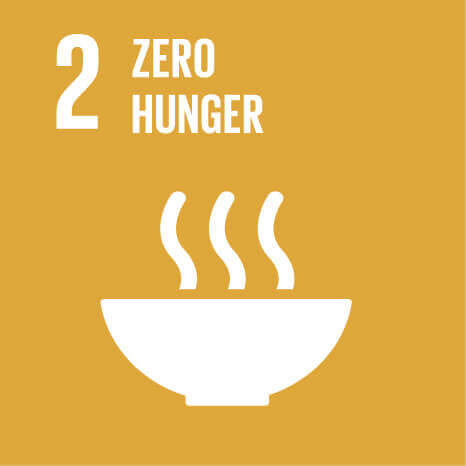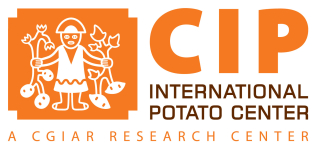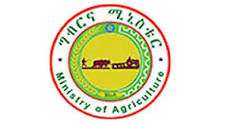The Ministry of Agriculture in Ethiopia adopts the National Potato and Sweetpotato Strategy, which support 1,000,000 potato farmers to improve productivity of potato farming systems
Published on: March 28, 2021, Submitted by Monica Parker on: March 28, 2021, Reporting year: 2020
The National Government will use the Ethiopia National Potato and Sweetpotato Strategy to guide decisions and investments to develop the potato value chain and identify the stakeholders to implement the strategy. The strategy will support the 1,000,000 potato farmers in Ethiopia to improve productivity of potato farming systems and efficiencies and equity along the value chain.
Preliminary discussion with farmers before conducting participatory variety selection
The overall goal of the Ethiopian national potato and sweetpotato strategy is to contribute to the improvement of food and nutrition security, and poverty reduction through sustainable intensification and diversification of agri-food systems and enhancing production, productivity, and market share of potato and sweetpotato in Ethiopia. It is projected that by implementing this strategy, the production and productivity of potatoes will be increased from the existing 3.6 million tons per year and 12.3 t/ha to 10 million tons and 20 t/ha, respectively. Similarly, the production and productivity of sweetpotato are projected to be increased from the existing 1.8 million tons per year and 20 t/ha to 6.0 million tons and 40 t/ha, respectively. This can be achieved through technological advancement, production, promotion, improved access, and the use of quality agricultural inputs particularly seed. The results of the strategy will be achieved through improved sector services delivery with investing in processing and marketing in response to the farmer and consumer demands. The strategy seeks to improve resilience to climate change especially in marginal agro-ecologies and enhance equal gender participation in most research and development interventions that would be developed from this strategy.
The national potato and sweetpotato strategy document preparation was funded by the International Potato Center (CIP) implemented project “Strengthening Institutional Systems for Scaling up OFSP in Southern Nation, Nationalities and People’s (SNNP) and Tigray Regions Project” funded by Irish Aid.
The strategy was prepared in tandem with other various government development strategies and programs for Ethiopia whose documents were reviewed. These included the Agricultural Growth Program II (AGP II), Growth and Transformation Plan II (GTP II), Second National Nutrition Program (NNP II), Seqota Declaration, Agriculture Sector Policy and Investment Framework, National Nutrition Strategy, Rural Development Policy, and Strategies (RDPS), Agricultural Development Led Industrialization (ADLI) Strategy.
The issues that were identified to be addressed in the strategy included variety and seed value chain development, crop management options such as cropping system, disease, and pest control, full commodities value chain development, marketing and post-harvest handling, processing, food security, and nutrition education, sector governance and growth and capacity building. Also included are cross-cutting issues such as participation of and relevance to women and youth, climate change mitigation, and environmental sustainability. Equally to be considered is the role of ICT, novel crop improvement and biotechnology, adaptation to climate change, and inclusion of extension and socioeconomic research for policy, technology promotion, and scaling at all levels.
The implementation of the strategy will be coordinated by the Ministry of Agricultura (MoA) and all stakeholders in Ethiopian potato and sweetpotato research and development will participate in the search for funding and execution of the programs, projects, and activities cascading from the strategy. To operationalize this strategy, a National Potato and Sweetpotato Council (NPSPC) organized by the MoA. The NPSPC will periodically evaluate the implementation of the strategy and provide timely feedback to stakeholders including development partners. It is proposed that this strategy will be implemented at different levels in the government hierarchy involving stakeholders in potato and sweetpotato value chains. Monitoring, evaluation, and learning will be part of this strategic plan. There will be rigorous monitoring, support, and evaluation process in the course of implementing this strategy to provide a learning theatre for the strategy actors to improve the two value chains.
The strategy is expected to deliver essential economic, social, technological, and environmental impacts for the family, community, associations, and other beneficiaries first in the potato and sweetpotato value chains in ecological and farming systems where the two crops naturally form the integral components.
This strategy is designed to last 10 years; however, it will be periodically assessed and reviewed whenever required to fit in the prevailing circumstances but without changing the intent, focus, and content of the original plan. During this time, scientific papers, working papers, and policy briefs will be published.
Stage of Maturity and Sphere of influence
-
Stage of Maturity: Stage 1
-
Contributions in sphere of influence:
1.4.3 - Enhanced genetic gain
C.1.1 - Increased capacity of beneficiaries to adopt research outputs
Acknowledgement
The preparation of the Ethiopian potato and sweetpotato strategy document was funded by the Irish Aid funded through, “Strengthening Institutional Systems for Scaling up OFSP in Southern Nation, Nationalities and People’s (SNNP) and Tigray Regions Project”. The content was gathered and draft by Fekadu Gurmu with Gebremedhin Woldegiorgis whose effort and time are acknowledged.
Projects
-
Seeds of Change - Enhancing Potato Innovation System for Scaling Climate-Smart Technologies for Samllholders in Ethiopia











